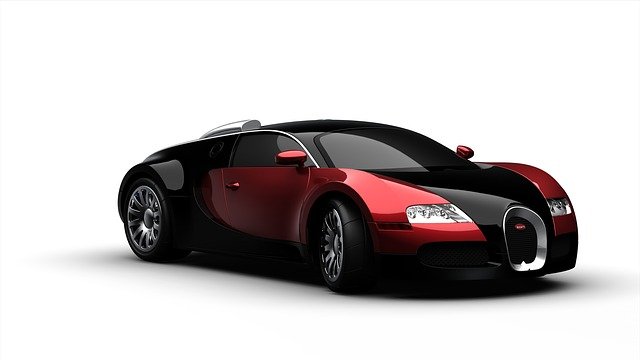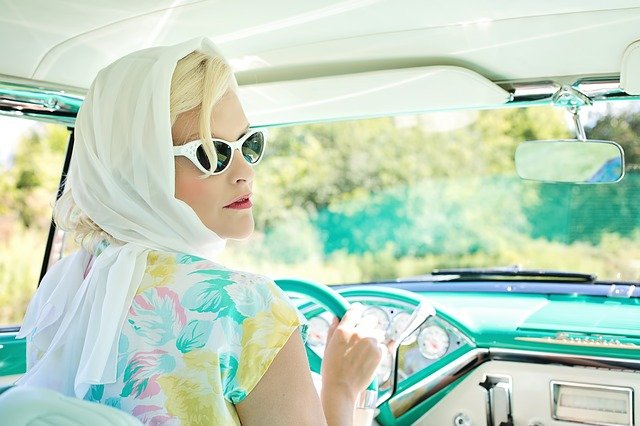Owning a classic car is a lifelong dream for many car lovers. When the day finally comes to drive your dream car home, you’ll want to make sure your new purchase is protected. But just as owning and caring for a classic car is quite different from normal car ownership, standard car insurance policies are not likely to provide the coverage you need. You’ll have to purchase a classic car insurance policy.
When it comes to registration and insurance, the qualifications a car must meet to be considered classic varies by state. In most cases, the car must be at least 20, but not more than 40 years old. Any restoration done to the car should be consistent with its original build, design and specifications.
Classic car insurance is designed to meet the specific needs of classic car ownership, which can be quite different than standard car ownership. If you’re considering the purchase of a classic car, you’ve come to the right place to learn everything you need to know about classic car insurance.
What is classic car insurance?
Classic car insurance is a specific type of car insurance policy, designed for the special needs involved in owning and driving classic cars. As a general rule, if a car’s value exceeds its original selling price then it may be considered a collectible or classic.
A classic car insurance policy will typically include some of the same coverages and provisions as a standard car insurance policy, but there will also be some key differences. For example, while a standard car depreciates in value with age, a classic car appreciates or gains value with age. Classic car insurance is designed to allow you to adjust coverage upward as your car increases in worth. A typical classic car insurance policy will include collision, liability, comprehensive and uninsured or underinsured motorist coverage.
Benefits of classic car insurance
Classic car insurance offers more financial backing for your vehicle. Unlike a regular car, classic or collectible cars have the potential to appreciate rather than lose value. Some of the benefits of buying classic car insurance are:
- To meet the state’s minimum insurance requirement
- To receive the full, agreed-to replacement value if your classic car is stolen or totaled
- To receive higher reimbursement for vehicle repairs if the collectible vehicle is damaged in a crash or covered peril
- To have specialized transportation for the vehicle in the event it needs to be towed
What is the best insurance for classic cars?
Classic cars have some insurance coverage similarities with standard cars, but also have some unique coverage needs, such as an adjustable coverage limit to account for the car’s value potential value increase over time.
Some of our best car insurance companies offer classic car insurance policies, while others are specialized classic car insurance providers. Here is a list of insurers to consider:
When comparing coverage from the top carriers, some of the best features worth looking into include:
- HIgher limits for spare parts, which can be more expensive than for a standard vehicle
- Inflation protection to cover your vehicle as it appreciates in value
- Less restrictive mileage limits (or none) if you plan on driving your vehicle more frequently
- Discounts that help you save on classic car insurance
Types of Coverage
Owning a classic car is a big investment that can be a great financial asset if properly maintained and adequately insured in the event of damage. There are several different types of classic car insurance coverage for you to consider.
Agreed value
Classic cars are unique in that their value increases over time, whereas the 2019 car you just bought will begin to depreciate in value as soon as you drive it off the lot. It will be up to you and your insurance provider to agree on an adequate value for the vehicle. Your policy should cover the full value and change over time to reflect the vehicle’s appreciation.
Restoration coverage
If you’re in the process of restoring a classic car, ask your insurer about restoration coverage. You’ll need to provide proof of ongoing restoration work, but your car will be covered during the restoration period and your policy will automatically adjust to account for the increase in value. A vehicle under construction policy could even provide coverage for your automotive tools and quarterly value increases. Remember, if you are restoring a classic car it must be restored using the original design and parts.
Spare parts coverage
What classic car aficionado doesn’t have a few spare parts lying around? With spare parts coverage, you’ll be protected in case anything happens to the expensive specialty tools and parts in your possession. Some providers even offer coverage for your automotive collectibles.
What kind of vehicles qualify for classic car insurance?
Antique cars, hotrods, exotic and luxury cars, muscle cars and classic trucks are a few examples of the types of vehicles that may need classic car insurance. Besides the type of vehicle, there are other requirements to meet before you can get classic car insurance.
For the car
Most classic car insurers will have a set of qualifications that must be met for a vehicle to be covered under a classic car policy. Each insurer has its own set of rules, but they generally share a few common factors.
- Age: Cars should be at least a decade or two old to be eligible for a classic car insurance policy, sometimes more. Some newer vehicles may qualify as collector cars, but these are the exception, not the rule.
- Limited use: You can’t drive 20 miles to work every day in your classic car. Some insurers will place an annual mileage limit on your vehicle; others have a list of uses expressly forbidden, such as commuting to work. Some insurers require you own a primary car for your everyday use to ensure that is not your purpose for the classic car.
- Condition: Classic car insurers want to see that you are taking good care of your vehicle. Don’t let things fall into disrepair unless you want to risk getting dropped by your insurance provider. If you’re planning to do major restorative work, you’ll need to purchase restoration coverage.
- Storage: Where you store your classic car will affect how much you pay for insurance. Some providers require the vehicle to be in a locked, enclosed, private structure.
For the driver
Owning a classic car is a big responsibility. Before they’ll cover your collector’s piece, insurance companies will want to know that you’re a low-risk classic car owner.
- Age and experience: Insurers know that young drivers without much experience aren’t likely to be prepared for classic car ownership. You’ll usually have to be at least 25 years old to insure one of these vehicles.
- Driving record: Keep your record clean if you want to insure a classic car. You should have no at-fault accidents, DUIs or other major infractions in the past five years. Any of these offenses on your driving record can disqualify you from getting or keeping your classic car insurance.
- Additional car: Since classic car insurance policies don’t cover everyday use, you’ll have to show proof that you own another vehicle for your daily commute.
How to get a classic car insurance quote
Once you’re ready to start shopping around and compare car insurance quotes, have the following information readily available. It’s important to apply the same information to all insurers to get quotes that are easy to compare.
- Make, model, year and type: You should know the make and model of your classic car as well as the year it was originally built. Decide which type best describes your vehicle: classic, vintage, antique or collector.
- Miles driven per year: Think about how many miles you plan to drive your classic car each year. It should be a low number, generally under 5,000 miles. Many classic car insurers have mileage limits you’ll have to keep in mind.
- Modifications: Have there been any modifications made to the vehicle? Do you plan to make any yourself? These are all questions that insurers will likely want the answers to, since they can greatly affect the value of the car.
- Storage type: Decide where you will store your classic car and how you will protect it. Locks and alarm systems may help lower your insurance premium, while storing the car outdoors or anywhere with low protection will drive rates higher or disqualify you entirely from coverage.
- Driver history: Your insurance provider should be able to look up your driver history to check for accidents and infractions. If you’re not sure what your driver history looks like, contact your local DMV for a copy of your driving record before getting quotes.
If you’ve got this information ready, you can shop around online to seek quotes using online quoting tools or call and speak with an agent directly. We recommend getting at least three quotes from different providers.
How much is classic car insurance?
Expensive car, expensive insurance, right? Not quite! Classic auto insurance rates are, on average, considerably less than standard auto rates. According to Hagerty, a collector car insurance agency, classic car insurance may cost you around 36% less per year than a standard car insurance policy.
As with standard auto insurance, how much your premium will cost will depend on a variety of factors, some related to the car and some related to the driver. Some factors that will affect your car insurance cost are the age of the vehicle, the value of the vehicle, the age of the driver, the gender of the driver, the driver’s driving record, credit score and more.
Discounts and savings
Even though classic car insurance is less expensive than standard car insurance, it’s still wise to look for ways to save. For example, you might opt for a higher deductible, bundle multiple vehicles and policies together, or put security measures into place.
Here’s a list of ways you may be able to save on your classic car insurance:
- Insure more than one car
- Keep more than one policy under the same insurer for a multi-policy discount
- Drive fewer miles
- Opt for a higher deductible
- Install anti-theft devices
- Show proof of car club membership
- Complete a safe driving course
- Show proof of storage and keep your vehicle stored during winter
- Shop around for lower rates or switch insurers
How do you determine the value of a classic car?
According to Jack McKenzie of Auto Accessories Garage, “There are a lot of aspects involved in appraising a classic vehicle. The value can vary based on the condition of the exterior, the condition of the interior, the state of the mechanical components, the authenticity of the vehicle, and how many original parts are still in working order.”
Can I bundle regular car insurance with classic car insurance?
Yes. In the past, this was not possible, but Mildred Ayala, First Vice President of Private Client Services at HUB International Northeast explains: “Due to the increased number of individuals owning classic & collectible vehicles, many insurance carriers now allow them to be added to the standard policy providing coverage for everyday use, private passenger vehicles. You need to inquire with the insurance company to see if this is something they offer. Some carriers that do offer this option are Chubb, PURE, Cincinnati Insurance Company and AIG Private Client.”
The Bottom Line
Classic car insurance is available from many different providers, including both specialty classic car insurers and traditional insurance companies. Your car is a unique asset, so take your time shopping around for a policy that best fits your needs. With a good classic car insurer, you should have the freedom to enjoy your classic vehicle while protecting its value for years to come with affordable car insurance that will fit your needs.
Source: https://www.bankrate.com/insurance/car/classic-car-insurance/




